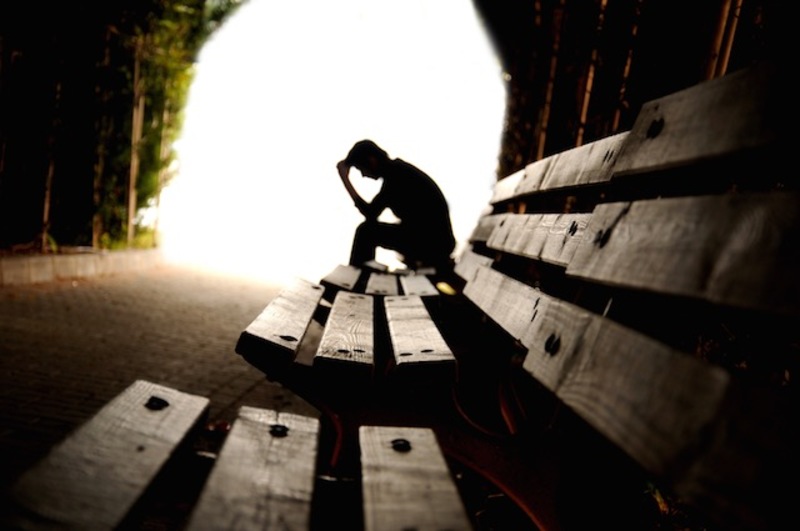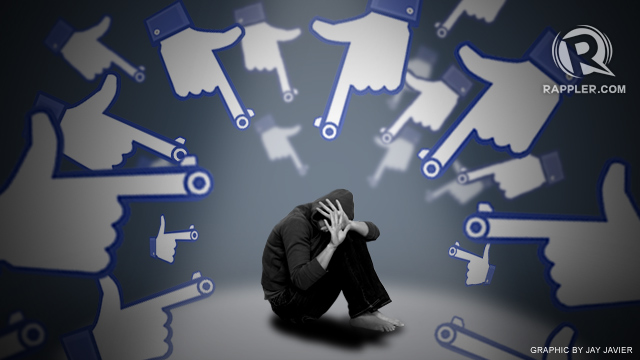I hated hearing the bell ring. I hated lunch breaks. I hated high school.
It was the winter of 2006 in Athens, Greece, when I was first bullied.
Right after our morning classes, I stood up, thanked the teacher, and went straight out to grab lunch. I was alone like most days. I’d only been in Athens and my new high school for several months then, and I barely knew how to speak Greek, making it hard for me to make friends. My older brother and sister were doing so much better. They were handsome and pretty and looked a lot more mature than I did.
But I still pretended that my life wasn’t so bad. I’d save my allowance throughout the week so I could buy a 5-euro phone card to call my friends in the Philippines and tell them about the beautiful things I saw in Greece every day and the awesome friends I never really made. They’d be amazed and envious and it made me feel less lonely.
My usual lunch routine involved going straight to the cafeteria, picking the same bread I ate every day, and going to that corner where the other misfits hung around, or more like wait for the break to finish. My mantra was simple: keep away from trouble. I always reassured myself that my mom’s job in Athens wouldn’t last forever and that we would go home soon enough. "Just a few more months, Kevin," I’d tell myself every day.
And so keep away from trouble I did. I tried to stay low-key and focused on my academic performance. I did very well in class and my teachers loved me. I started making a few friends, but the language barrier still made it hard for me to rev up my game and get closer to them.
"Just a few more months, Kevin," I told myself again on my way out of the classroom.

It was supposed to be a normal lunch break for me again – my usual grab-bread-and-wait-for-the-bell kind of day. I didn’t do anything special, nor wear anything that would make me stand out that day. But for some reason, bullies saw right through the crowd and found their way to me.
"Kriiing," the bell rang to signal the end of our lunch break and the students started marching to the entrance. The nobodies’ corner was just next to the building door, so I was usually able to go in first.
I took a last bite of my lunch, threw the unfinished bread into the garbage can, and walked to the entrance.
Then I saw two kids running. I didn't know where they were going or why they were running. I didn't care because I didn't really know them. They were older popular kids – one was Turkish, the other was Russian. I thought maybe they were playing around or were in a hurry to get inside. "Keep away from trouble," I just told myself and continued walking.
Before I knew it, I was already sitting right next to my unfinished bread. Inside the trash can. The students at the entrance were all staring at me – some were shocked, but most of them were laughing.
I remember about 20 students were there when it happened, but none of them offered to help me, even after the bullies scrammed away. I tried to stand up as fast I could, but my arms and feet were still numb because of fear and embarrassment.
A teacher saw me and helped me get up. He asked me if I was okay, and, realizing that other students were still staring at me, I held my tears in, thanked the teacher, and walked inside like nothing happened. I went straight to the comfort room, locked myself in one of the cubicles and cried as silently as I could.
That was just the first time it happened.
It runs deeper than you think
Fast forward almost a decade later, I’m already 23 years old, a college graduate, and working a job. Yet here I am, suddenly finding myself crying over videos about bullying.
I thought I was over it. But the cuts of bullying run deeper than I thought.
They say that teenhood is pivotal to one’s life. It’s when our innocence begins to fade and we start seeing life’s many colors. It’s when our sense of identity is born, when we discover who we are and what we want to be.
Bullying is more than just physical harm. It’s the harshest form of rejection, one that gets in the way of our growth and self-discovery.
Contrary to what a lot of people think, victims usually blame themselves more than anyone. They blame themselves for being weak, for not being popular, for not looking good enough, for not being white, for not being born to a more privileged side of the world, etc.
This is because we grow up in a society that tells us that this is an eat-or-be-eaten world. We grow up in a society that tells us that being weak is a sin, and that nobody else is to be blamed for this but yourself. Never mind that the world is already unequal as it is, that some people are already being discriminated on the basis of their race, color, and gender.

What bullies sees as just "having fun" makes people look down on themselves and not see their worth. It breaks confidence, harms reputations, and undermines one’s ability to perform.
The trauma cuts deep and the scars stay for a long time.
It’s more common than you think
Bullying is not just physical harm and is much more common than people think. Many bullies don’t even notice that they are already bullying.
For instance, a common form of bullying in the workplace is isolation: the frequent nit-picking and refusal to acknowledge a person’s worth and achievements, and his or her outright exclusion from the majority. Being singled out and treated differently is discrimination. It belittles, humiliates, and demeans a person. Gossiping too is bullying, one that harms reputation.

In the Philippines, bullying has become even more rampant through social media. Netizens, whose confidence is boosted by a sense of anonymity online, wouldn’t even think twice to call people out for their imperfections. Scandals and photos that humiliate people often go viral on Facebook and Twitter. Celebrities online are treated like objects, devoid of feelings and unentitled to defend themselves. We call supporters of politicians we hate "retards," completely disregarding the many people the word hurts.
When we’re in front of the computer screen, it’s so easy to forget that on the other side are also other human beings who feel pain and grief.
We can be so much better than this
Even up to this day, I still ask myself: "What if those people who saw me getting bullied tried to help? What if even one person then warned me about the bullies, called for help, or told them to stop?"
The world is wild and crazy. It can really be an eat-or-be-eaten world and I learned that the hard way. But we’re not animals. Neither are we robots. Let’s not forget the very attribute that makes us unique – the ability to empathize and put ourselves in other people’s shoes.
Virginia Shea in her book about netiquette gave a simple yet great piece of advice: remember the human.
Remember the human who’s behind that Facebook profile. Remember the human who is your classmate and is probably having a hard time making friends. Remember the human who is your neighbor, the one who's hating himself for having dark skin, acne, and curly hair. Remember the human in your friend who might not have the courage to tell you that he or she is hurting when you jokingly call her fat and ugly. Remember the human in that gay schoolmate who people make fun of and tease all day. Remember that you are human too.
If only people would think this way, maybe then I wouldn't be feel so scared whenever a bell rings. – Rappler.com
Don Kevin Hapal was a high school student in Athens, Greece. He now works as a social media producer and BalikBayan coordinator for Rappler.com.